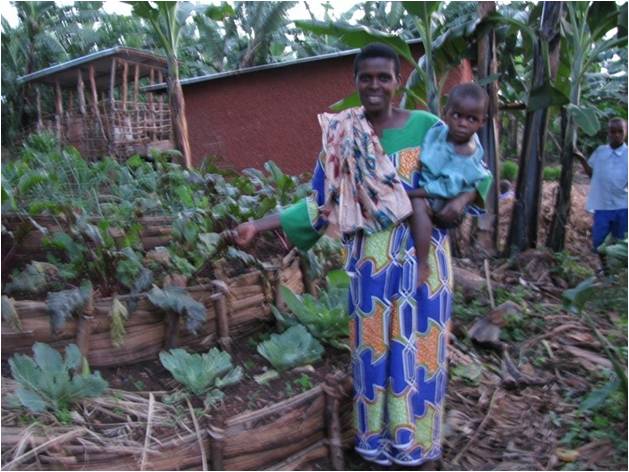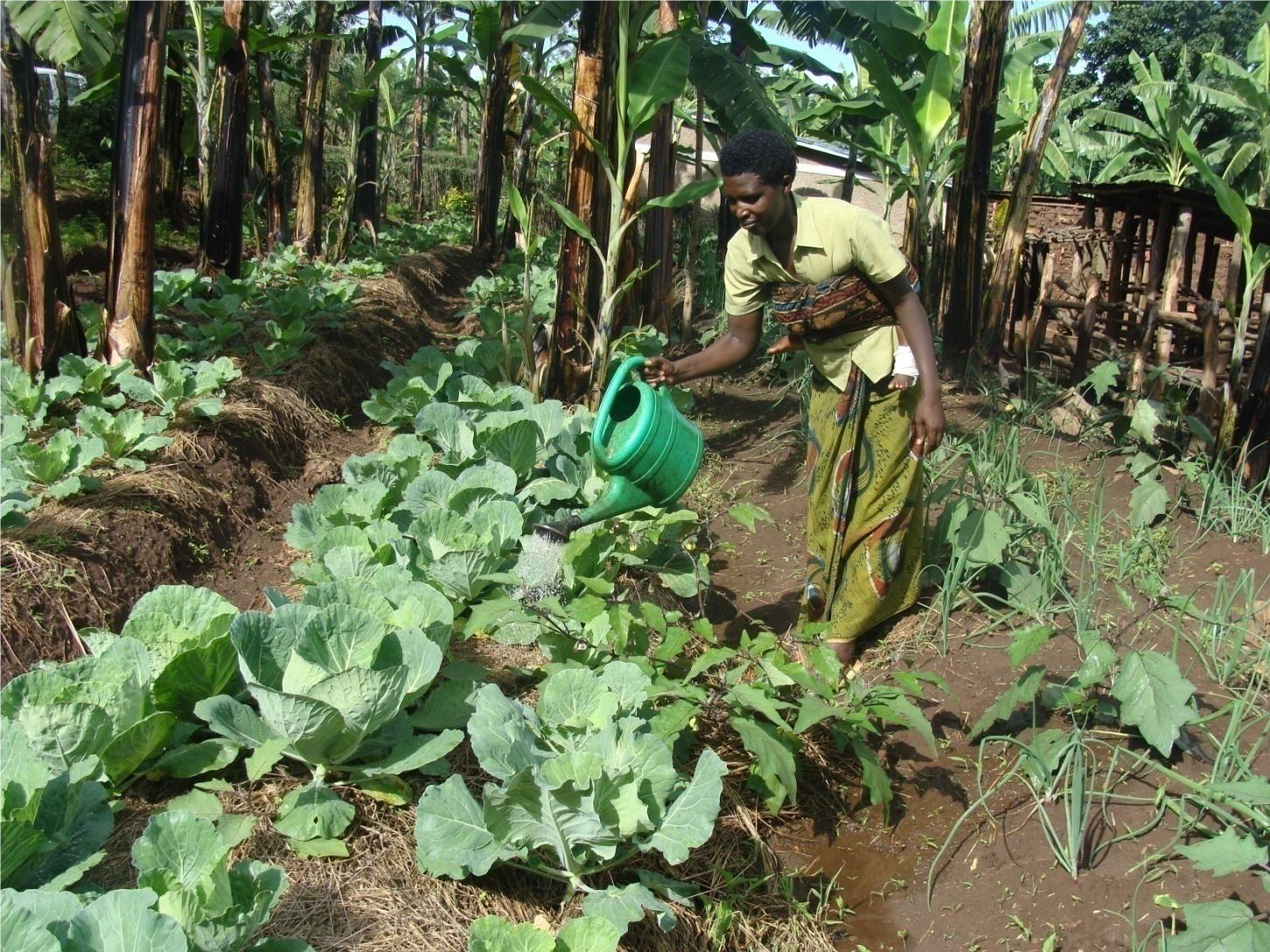Kitchen gardens
In Rwanda, the term 'akarima k’igikoni' or kitchen garden is quite common because many households have discovered the amazing production you can get from a well managed vegetable garden. It is a generally accepted rule in Rwanda that every household should have kitchen garden to fight malnutrition.
The typical pyramid form of kitchen garden are found all over Rwanda. The specific structure optimizes aeration, nutrients, light and water use on a minimal surface.

Providing a better diet
In Rwanda, chronic under-nutrition and micro-nutrients deficiencies remain important public health issues, especially under children. Demographic Health Survey DHS 2015, found 38% prevalence of chronic malnutrition. Malnutrition is caused by of lack of nutrients resulted from low intake or from worms or other diseases caused by hygiene. Malnutrition causes stunting among children and cannot be recovered at later age. Among the complex underlying causes are lack of diverse diet, limited knowledge about nutrition principles and appropriate complementary feeding practices, small plot sizes, and lack of financial resources to purchase nutritious foods and deficient hygiene.
Kitchen gardens are based on the principles of permaculture.

It is a diverse production system efficient use of the water, energy and nutrient flows around the farmhouse and can be very productive. Waste and waste water are recycled in food production.
The main purpose of kitchen garden is to provide food for the family at low cost. Vegetables grown are cabbage, greens, carrots among other. Trees around the house can provide shade, trees and firewood. Small animals like chickens keep the court clean from insects and waste.
Some people complement the garden with small animals like poultry or rabbits. People also establish home based tree nurseries for the renewal and diversification of trees in the agro forestry systems, private woodlots and along roads and rivers.
Household waste and garden residues can be used to make compost. Animal manure, ash and water are added to improve the quality of the compost. The ready compost is a clean odorless soil. The compost serves to improve structure and fertility of the soil.
FURTHER READING:
Infosheet on kitchen gardens (French)
Holistic approach to HIV, health, nutrition and livelihoods
Videos:
The construction of typical kitchen garden:
